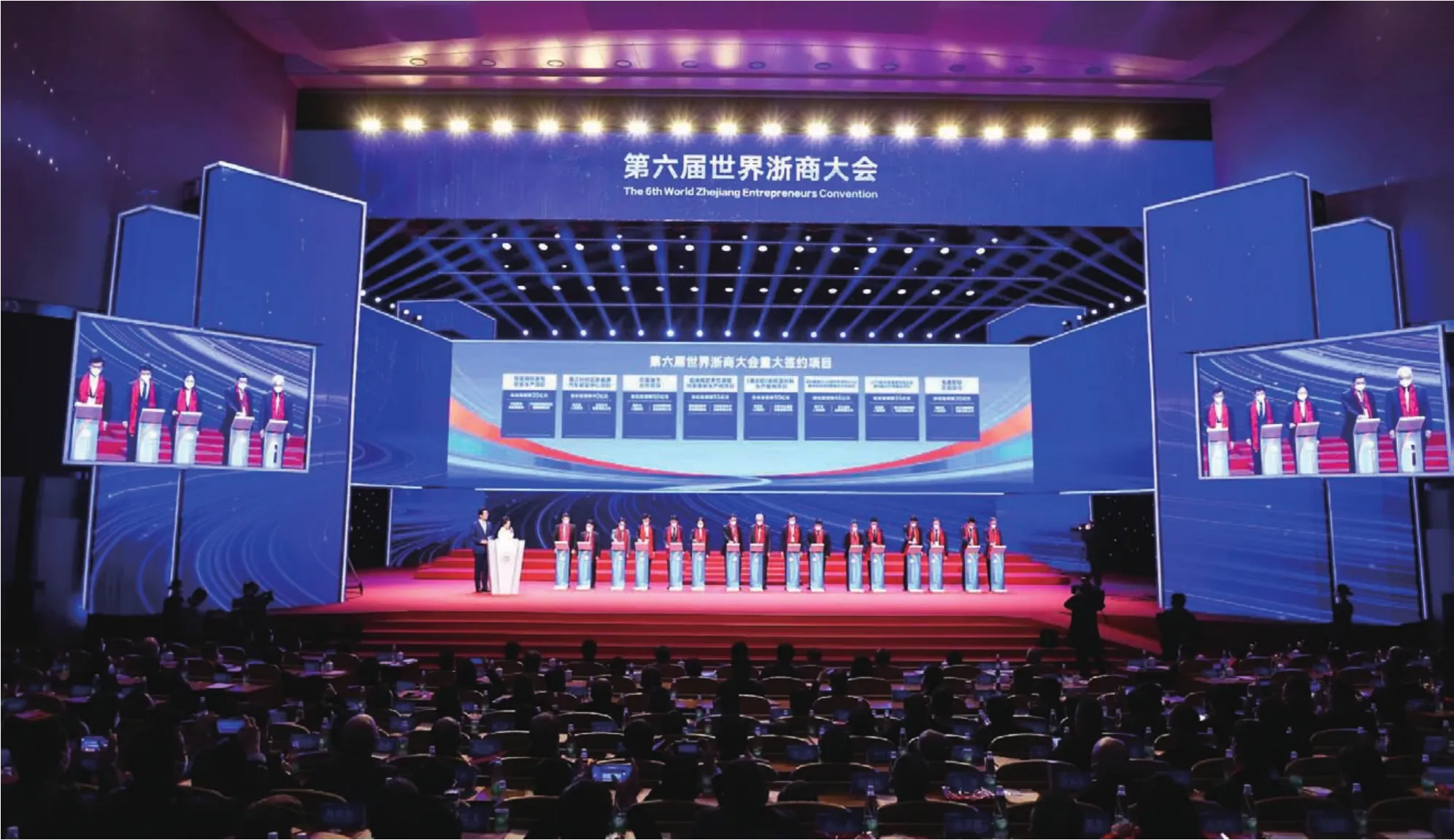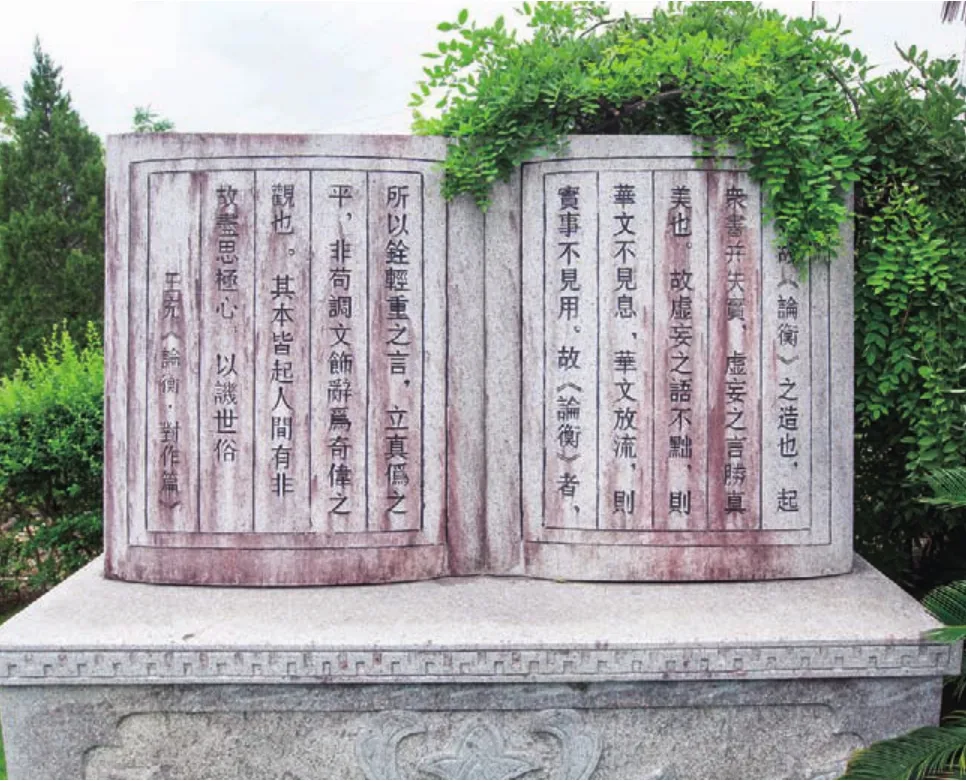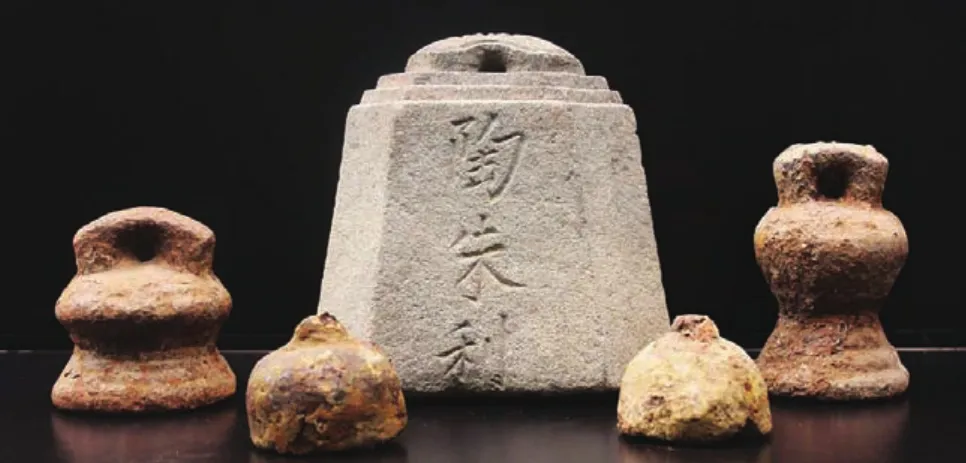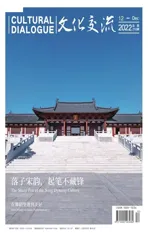浙商文化与浙商精神
2023-01-31杨轶清林国喻
文/杨轶清 林国喻

2022年12月23日下午,第六届世界浙商大会在浙江省人民大会堂开幕。The Six World Zhejiang Entrepreneurs Convention opens at the Great Hall of People in Zhejiang on December 23, 2022.
创业创新闯天下,合心合力强浙江。12月23日下午,第六届世界浙商大会在浙江省人民大会堂开幕。来自五湖四海的浙商满怀游子思乡情、赤子桑梓情、骄子创业情,回到家乡、汇聚一堂,共叙情谊、共商合作、共谋发展、共话未来。
时代在发展,浙商的脚步从未停止。作为浙江改革开放的生力军,40多年来,浙商推动浙江发展的路径也在与时俱进。在推进中国式现代化、建设共同富裕示范区的新征程上,浙商文化依然是浙商打造世界一流企业的灵魂。
企业是一个社会的经济细胞,是人类社会经济活动的基本形式,企业家是推动社会进步的重要力量。据不完全统计,有600多万浙江人在省外创业,有150多万浙江人在世界各地创业,海内外的浙商近1000多万人,中国民营企业500强浙企上榜家数连续23年蝉联全国首位,浙商是当代中国最具有辨识度的创业者群体,他们是时代的弄潮儿。浙商就像闻名中外的钱江潮水,勇立潮头,敢为人先,勇闯天下,体现着浙江人的精神,是中国乃至世界上规模最大、分布最广、最具活力、最具创造力的企业家群体。
浙商经济现象的背后,有着深厚的文化积淀,浙商文化是浙商之魂。浙商文化和良渚文化、吴越文化、宋韵文化一样,都是浙江文化的重要组成部分,是浙江的一张金名片,文化的力量成为引领和支撑浙商创新创业的不竭动力,促进地方经济的发展,推动着社会文明的进步。
浙商的文化基因
浙江人在文化上拥有敢于创新的传统。从先秦至明清,浙江地区涌现出非常多的思想巨人,他们或开一代之学风,或成时学主流,或领昭著功业,形成了独特的问题关切与思维进路,这种独特的“浙学”文化传统,成为浙商文化的思想基础。
先秦时期的代表人物计然、范蠡,东汉的王充,所构筑的以尊重自然的理性主义、讲求务实的实用主义与志在经济的实践精神,是浙江重商文化在思想与精神上的重要发源,也为浙商崛起与浙江发展奠定了思想理论基石。
现代浙商文化的历史起源中,充分借鉴了海洋文化和中原文化的精髓,成就了儒家文化中独特的一脉。这一文化基因以南宋时期温州的“永嘉学派”和金华的“永康学派”为代表,在“舍利取义、以农为本”的农耕社会中就开始强调“义利并重、工商皆本”的观念,这无疑是一个大胆的创新。
“浙学”萌芽于先秦,自南宋成形以来历经800余年,至今仍是支撑浙江发展的强大文化动力。浙江先哲们开创的这种求真务实的精神、敢于创新的文化传统,也成为改革开放后浙商迅速崛起为中国最具影响力的商帮群体之一的源头活水。
浙商的文化基因是一脉相承的,是一种非常宝贵的精神财富,这一优势与浙江的其他优势结合,政府、民间互动,使浙江的经济更加发展、民主更加健全、科教更加进步、文化更加繁荣、社会更加和谐、人民生活更加富裕。
浙商的创业精神
浙商大都草根起步,早在计划经济年代就有“勿以善小而不为”的精神。在那个年代,一大批浙江人离开浙江,在全国各地从事各种被当地人看作“胸无大志”的工作,而如今浙江许多身价上亿的民营企业家就是从这些人群中冒出来的。当年,他们中有些是收破烂的,有些是弹棉花的,有些补鞋,有些是打铁的小炉匠,但他们从来不以从事这些劳动为耻,善于把握机会,为以后的创业积累了宝贵的经验。
在浙商的崛起过程中,最典型的一个是“四千精神”:即走遍千山万水,想尽千方百计,讲尽千言万语,历尽千辛万苦。创业经商,哪里有市场,哪里就有浙商,走遍千山万水,体现的是格局。想尽千方百计,善于变通,不为失败找借口,只为成功找方法,体现的是智商。做生意,归根结底是与人打交道,讲尽千言万语,体现的是情商。历尽千辛万苦,白天当老板,晚上睡地板,体现的是逆商。“四千精神”是对浙商精神最传神的刻画,体现了浙商群体独有的人格魅力和精神特质。
改革开放之初,浙商发扬“四千精神”,为浙江经济社会日后的繁荣发展奠定了重要的原始资本基础。浙商的敢为人先与勤劳实干,走出了以民营经济为主的浙江经济新局面。
工匠精神在浙商群体中是有传承的,因为浙江本来就是百工之乡,浙江地少人多,穷人不得不用手艺来养家糊口。所以浙江手艺人特别多,这种工匠精神在各行各业都有体现。但是,今天的工匠精神是在老祖宗基础上的一种提升与升华。今天,无论是传统技术产业、文化产业还是高端制造产业等,浙商都在用工匠精神提供优质的产品。吉利就是很好的例子。浙商从仿制到自主制造到精工制造,现在是创新制造,这就是升华。
浙商从改革开放以来一直都是勇立潮头的,但是今天的勇立潮头和未来的勇立潮头不是简单的“喝头口水,别人没干过的事我来干”,我们的目标要瞄准世界一流企业,要在国际视野的基础上勇立潮头。
浙商的区域文化
“一方水土养一方人”,是社会观察的客观结论。浙商作为一个群体,其实与浙江的山山水水,与浙江的传统文化,与浙江人的品格休戚相关。因为人是社会自然元素的综合体,必然与其长期的生活环境有着因果联系。明代著名学者王士性在其人文地理名著《广志绎》一书中对各地中国人的性格特征进行了细致准确的描述:

知名浙商的人物像展示长廊。A long corridor showcasing the pictures of notable Zhejiang entrepreneurs.
杭、嘉、湖平原水乡,是为泽国之民;金、衢、严、处,丘陵险阻,是为山谷之民;宁、绍、台、温连山大海,是为海滨之民。三民各自为俗:泽国之民,舟楫为居,百货所聚,闾阎易于富贵,俗尚奢侈,缙绅气势大而众庶小;山谷之民,石气所钟,猛烈鸷复,轻犯刑法,喜习俭素,然豪民颇负气,聚党与而傲缙绅;海滨之民,餐风宿水,百死一生,以有海利为生不甚穷,以不通商贩不甚富,闾阎与缙绅相安,官民得贵贱之中,俗尚居奢俭之半。
浙商是以共同文化伦理为纽带组成的企业家群体,由杭州、宁波、温州、绍兴、金华等11个设区市组成。从地域来说,其内部由不同的板块构成。因为浙江县市之间历史文化经济呈现较大差异性,因此内部各板块的浙商也有相应的差异,其历史渊源、形成过程、行为习惯、经济特色都有个性化的呈现。正是各地“二级浙商”的差异性,使得浙商整体内涵更加丰富深厚。
杭州是中国历史文化名城,中国八大古都之一,被誉为“人间天堂”“丝绸之府”“中国茶都”。杭商因地理原因主要受吴越文化影响,在历史发展过程中又吸收了佛教、道教文化,吸收了以中原文化为主的北方文化和皇家文化,还吸收了海外文化以及以科学技术为主要内容的西方文化等,兼具传统与现代,形成了“开放兼容”“和谐创新”的地域文化。

范蠡被后人尊称为“商圣”,图为诸暨范蠡祠。Fan Li is regarded as the Saint of Business. A Fan Li Shrine is shown in the picture.

浙江上虞籍汉代著名思想家王充 ,被称为“浙学的开山之祖”,著有不朽的浙学经典名著—《论衡》。Wang Chong, a Han dynasty thinker born in Zhejiang’s Shangyu, is considered the“founder of the Zhe School. His main work was Lunheng (or Critical Essays).
宁波是具有7000多年文明史的“河姆渡文化”发祥地。宁波文化荟萃,四明学派、阳明学派、浙东学派等在历史上产生较大影响。宁波是一座有着悠久商业文明的文化城市,商业史可追溯到唐宋,唐宋的明州,是中国最重要的对外贸易港口之一。浙东学派源于儒学却对儒学做出革新,把儒学和经世济用相结合,宁波商帮形成独特的“商文合一”“尚文尚礼、崇信崇义”的地域文化。宁波商帮是近代中国最大的商帮,“无宁不成市”的说法驰名海内外。
温台历史上也是重要对外开放贸易港口,改革开放后,成为中国市场经济最活跃的城市,创造了许多中国第一,“温台模式”成为全国典型。温台商人受“山海文化”“永嘉文化”等影响,注重经世致用,主张通商惠工,表现出“敢为人先”“吃苦耐劳”“走遍四海”等商业特质,尤其是温州商人成为浙商群体中在全球地域分布最广的一支。从GDP角度来说,在外创业的200万温州人相当于在温州之外又再造了另一个温州。
萧绍地区即古越文化的核心地区,先秦越国范蠡和计然的商品经济思想,一开始就体现了不尚虚功、求实利的风格。它拥有重商传统,史书记载:“越人,喜奔竞,善商贾。”萧绍商帮是由活跃在萧绍平原上的萧山、绍兴本土企业家组成的群体,萧山和绍兴是浙江经济最为发达的地区之一,是中国最大的纺织化纤制造基地。萧绍商人以“奔竞不息,勇立潮头,敢为天下先”的气魄闻名于世。
金华是百工之乡,自古手工业发达 。宋元时期逐渐发展成东南地区著名的文化和学术中心,以吕祖谦为代表的“吕学”、以陈亮为代表的“永康之学”对婺商文化影响深远。义乌、东阳、永康是婺商最为集中的区域,这三个地方又各具特色。义乌商人“鸡毛换糖”的商业创举,被列为浙商标志性事件第一名。义乌是全世界最大的小商品集散中心,被称为“世界小商品之都”。
The Spirit of Zhejiang Entrepreneurs
By Yang Yiqing Lin Guoyu
The Sixth World Zhejiang Entrepreneurs Convention was opened at the Great Hall of People in Zhejiang on December 23,2022. It attracted over 700 participants, including business leaders,overseas Zhejiang business people, Fortune 500 representatives and scholars, among others. In this changing era of economic deve lopment, Zhejiang businessmen have never stopped their steps. As a new force in Zhejiang’s reform and opening-up, they have been promoting its development innovatively for more than 40 years.
Enterprises are the economic cells of a society and the basic form of human socioeconomic activities. Meanwhile,entrepreneurs are an important force to promote social progress.
Zhejiang entrepreneurs are the most recognizable group of entrepreneurs in China. They are the trendsetters of the times. Like the famous Qiantang tidal bore, Zhejiang businessmen bravely stand at the forefront of the tide, daring to be the first and to brave the world, which reflects the spirit of Zhejiang people as the largest, most widely distributed, most dynamic, and most creative group of entrepreneurs in China and even in the world.
Behind the economic phenomenon of Zhejiang businessmen lies a profound cultural accumulation. That is to say, the unique culture of Zhejiang entrepreneurs is their soul. Just like Liangzhu Culture, Wuyue culture and Song culture, it is an important part of Zhejiang culture and a golden business card of Zhejiang.The power of culture has become an inexhaustible driving force to guide and support the innovation and entrepreneurship of Zhejiang businessmen, boosting the development of local economy, promoting the progress of social civilization.
Zhejiang people have a tradition of innovation in culture.From the pre-Qin (221-207 BC) period to the Ming (1368-1644) and Qing (1616-1911) dynasties, there were many giants of thought in Zhejiang, who either opened up a learning style or scored notable achievements, forming a unique focus and thinking path. This unique cultural tradition of Zhexue, or the Zhejiang School of studies, has become the ideological foundation of Zhejiang business culture.
The historical origin of the modern Zhejiang business culture has drawn on the essence of the maritime culture and the culture of the Central Plains (Central China) to form a unique lineage of Confucianism. Zhexue, sprouting in the pre-Qin period, has lasted for more than 800 years since it took shape in the Southern Song dynasty (1127-1279), and is still a powerful cultural driving force supporting the development of Zhejiang. This spirit of truth-seeking and pragmatism and the cultural tradition of daring to innovate started by ancient Zhejiang philosophers has also become the source of living water for the rapid rise of Zhejiang businessmen as the most influential business group in China after the 1980s, making economy more developed, democracy more sound, science and education more progressive, culture more prosperous, society more harmonious and people’s life more affluent in Zhejiang.
Most of the businessmen in Zhejiang started from scratch and had the spirit of “always doing good, however small” in the planned economy. A large number of Zhejiang people left their hometown to be engaged in jobs across the country that were shunned by the locals. They never felt ashamed of their trivial jobs and were good at seizing opportunities, accumulating valuable experience for future entrepreneurship.

传说中国传统称量工具杆秤是范蠡发明的,这是从运河杭州段出土的汉代铁权(铁秤砣)和元代铁权,以及一个罕见的石头秤砣。Legend has it that the steelyard, a traditional Chinese weighing tool, was invented by Fan Li. The picture shows a Han dynasty iron weight and a Yuan dynasty iron weight unearthed from the Hangzhou section of the Grand Canal, as well as a rare stone weight.
In the process of the rise of Zhejiang businessmen, their most typical experience is “Four-Thousand Spirit”: that is, to travel thousands of mountains and rivers, to think of thousands of ways and means, to speak thousands of words, and to pass through thousands of ordeals. And the “Four-Thousand Spirit” is the most evocative portrayal of the spirit of Zhejiang businessmen, reflecting the unique charisma and spiritual qualities of the Zhejiang business community.
Craftsmanship is inheritable in the Zhejiang business community because Zhejiang has always been the home of hundred types of craftsmen, and the poor had to use their crafts to support their families because of the large population on the small farmland. But nowadays, craftsmanship is a kind of upgrading and sublimation based on our ancestors. Whether in traditional,classical industries, cultural industries or high-end manufacturing industries, Zhejiang businessmen are providing superior products with craftsmanship. The carmaker Geely is a good example.
Since China’s Reform and Opening-Up, Zhejiang businessmen have always been at the forefront of the tide. But braving the tide today and in the future is not simply “to do what others have not done”. The goal is to establish world-class enterprises, and to stand out on the basis of our international vision.
It is an objective conclusion from social observation that“the unique features of a local environment always give special characteristics to its inhabitants”. Zhejiang businessmen are a group of entrepreneurs linked by a common cultural ethos, consisting of those in 11 cities including Hangzhou, Ningbo, Wenzhou, Shaoxing and Jinhua. The huge differences in history and culture between local counties and cities lead to corresponding internal differences of the businessmen. It is the difference of “secondary Zhejiang businessmen” in different regions that makes the overall connotation of Zhejiang businessmen rich and profound
Hangzhou is a famous historical and cultural city and one of the eight ancient national capitals of China. Due to geographical reasons, Hangzhou businessmen are mainly influenced by Wuyue culture. In the process of historical development, they have also absorbed Buddhist and Taoist culture, Northern Chinese culture and imperial culture, as well as Western culture with science and technology as the main content. With both tradition and modernity, they embody a regional culture of “openness and compatibility” and “harmony and innovation”. As one of the most important international trade ports in China, Ningbo is the birthplace of Hemudu Culture with a history of over 70 centuries.Ningbo businessmen group is the largest business community in modern China, and the saying “No market is possible without Ningbo businessmen” is well known at home and abroad.Historically, Wenzhou and Taizhou were also important ports for foreign trade, and the “Wenzhou-Taizhou model” has become a national model. In particular, Wenzhou businessmen are the most widely distributed group of Zhejiang businessmen worldwide.From the perspective of GDP, what is created by the two million Wenzhou people who started their businesses outside of Wenzhou is equivalent to that made in Wenzhou.
The Xiaoshan-Shaoxing area is the core area of ancient Yue culture, whose businessmen are famous for their mercantile spirit of “competing endlessly, standing at the forefront of the tide, and daring to be the first in the world”. Jinhua has been a place of developed handicrafts since ancient times. Yiwu, Dongyang and Yongkang are places where Jinhua merchants are most densely concentrated, though with their diverse characteristics. Yiwu businessmen’s practices of “bartering chicken feathers for sugar”are listed as one of the most significant events of Zhejiang business in recent history. Yiwu is the world’s largest small commodity distribution center, known as the “capital of small commodities in the world”.

浙商博物馆“天上那些星星”板块介绍了7位浙商杰出代表,其姓名被国际小行星中心和国际小行星命名委员会用于命名新发现的一些小行星。In “Stars in the Sky” section at the Zhejiang Entrepreneurs Museum, the names of seven prominent Zhejiang business people have been used by the Minor Planet Center of the International Astronomical Union for newly discovered asteroids.
